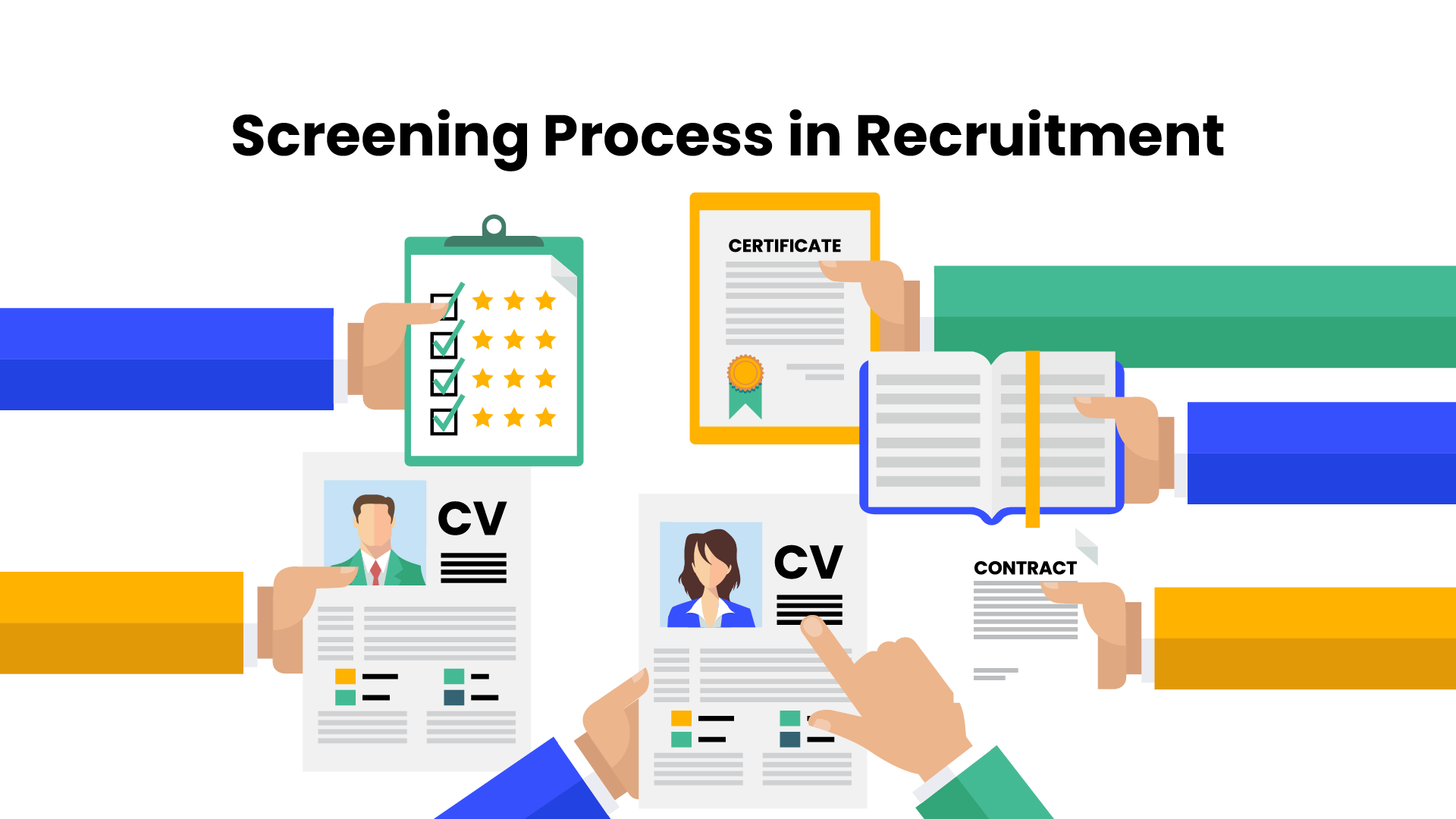
Learn the five most common screening methods, why they matter, and how the right tools help teams hire faster with clearer decisions.

A report shows that 23%, or nearly a quarter of Singapore’s workforce, already operates full remotely. More companies are opening the doors to candidates beyond traditional office walls. For employers, this shift is no longer just about convenience, it has become a challenge to stay ahead in attracting and retaining skilled employees.
At the same time, businesses, no matter of their sizes, are recognizing the importance of remote recruitment as a long-term strategy. Moreover, 83% of employers in Singapore report difficulty finding the skilled talent they need. Remote recruitment makes it possible to tap into global skills while giving candidates the flexibility they increasingly expect.
Yet this opportunity also brings its own challenges, like managing time zone differences and ensuring fairness in evaluations. That’s exactly what video interview software is designed to solve.
Video interview software offers significant benefits for remote hiring. Let’s dive into each of these advantages more closely.
One of the strongest advantages is the ability to connect face-to-face with candidates regardless of their location. Video interviews provide more personal interaction than phone calls and allow hiring managers to observe body language and expressions. This will make conversations clearer and more engaging.
The adoption rate is also proof of its value, 86% of hiring processes globally now use virtual interviews (including one-way video interviews).
Coordinating interviews across time zones can be challenging, but video platforms simplify it. Modern tools automatically detect candidate and interviewer time zones and propose suitable slots to minimize conflicts and improve the candidate experience.
In addition, asynchronous video interviews let candidates record answers to preset questions at their own convenience while recruiters review them later.
Video interview platforms allow standardized questioning. Every candidate can be asked the same set of questions, and recordings can be reviewed by multiple stakeholders. This reduces bias and ensures consistent evaluation, something that’s much harder to achieve with informal in-person interviews.
With video interviews, there’s no need to book meeting rooms, arrange travel, or block off long office hours. Recruiters can screen more candidates in less time, and both sides save on costs.
For companies hiring at scale or across borders, this efficiency translates into a lower cost-per-hire and a faster time-to-fill. In fact, 45% of recruiters report that video interviews helped them speed up their hiring process.
See also: Video Interview Guide: Most Common Questions and Practical Tips
Ahead of exploring each video recruiting software in detail, here’s a clear comparison of the top 7 tools available in Singapore in 2025
Now that the comparison table has given us a big-picture view, let’s dive into each video interviewing software individually to understand its advantages, special features, and any limitations to note.
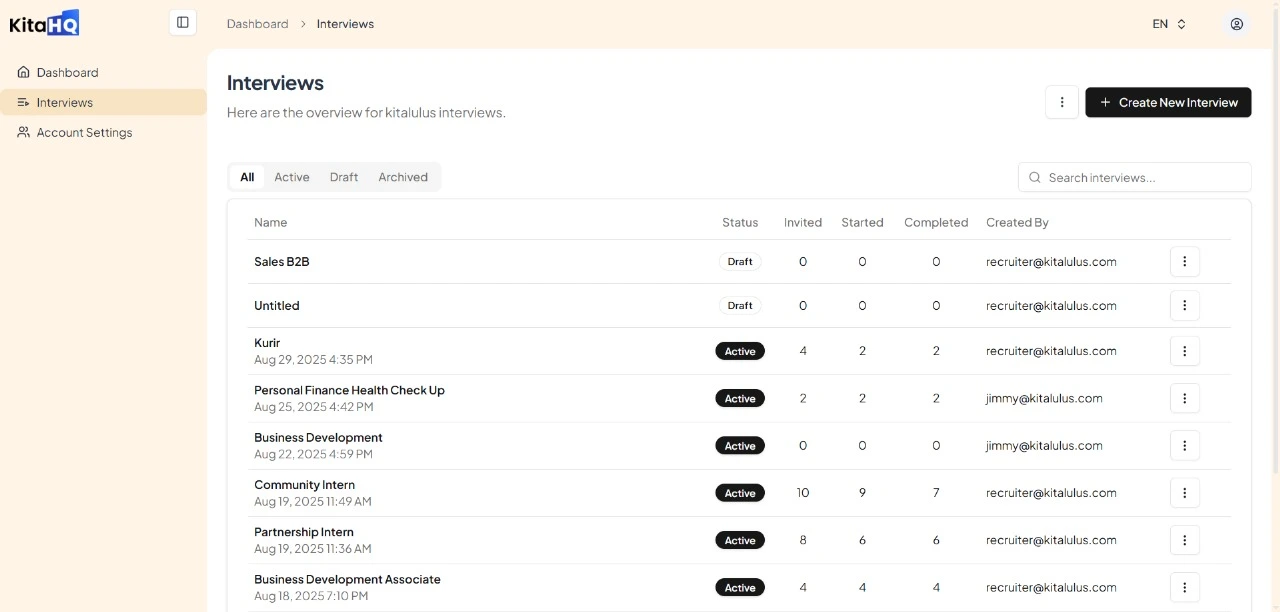
KitaHQ is an AI-powered recruitment platform based in Singapore. Designed for multilingual workforces, the platform is available in English, Bahasa Indonesia, and Malay. It automates video interviews for HR teams, recruiters, and hiring managers.
KitaHQ generates role-specific questions, handling scheduling automatically, and producing structured assessments backed with clear analytics. By removing manual workload through automation, it cuts hiring timelines dramatically, with reports showing results up to ten times faster than traditional methods.
The platform supports scalability, reliability, and impartial selection throughout the process. Every applicant receives the same questions and is evaluated on the same standards, which strengthens fairness and reduces bias. Recruiters gain direct access to recordings, transcripts, summaries, and scoring data that help them make decisions with clarity and confidence.
KitaHQ fits well for organizations managing large hiring drives and companies in growth phases. Candidates can complete interviews whenever they choose, which reduces scheduling clashes and lifts participation rates.
Key Features:
Weaknesses:
See also: 25+ Common Phone Interview Questions and How to Answer Them Effectively
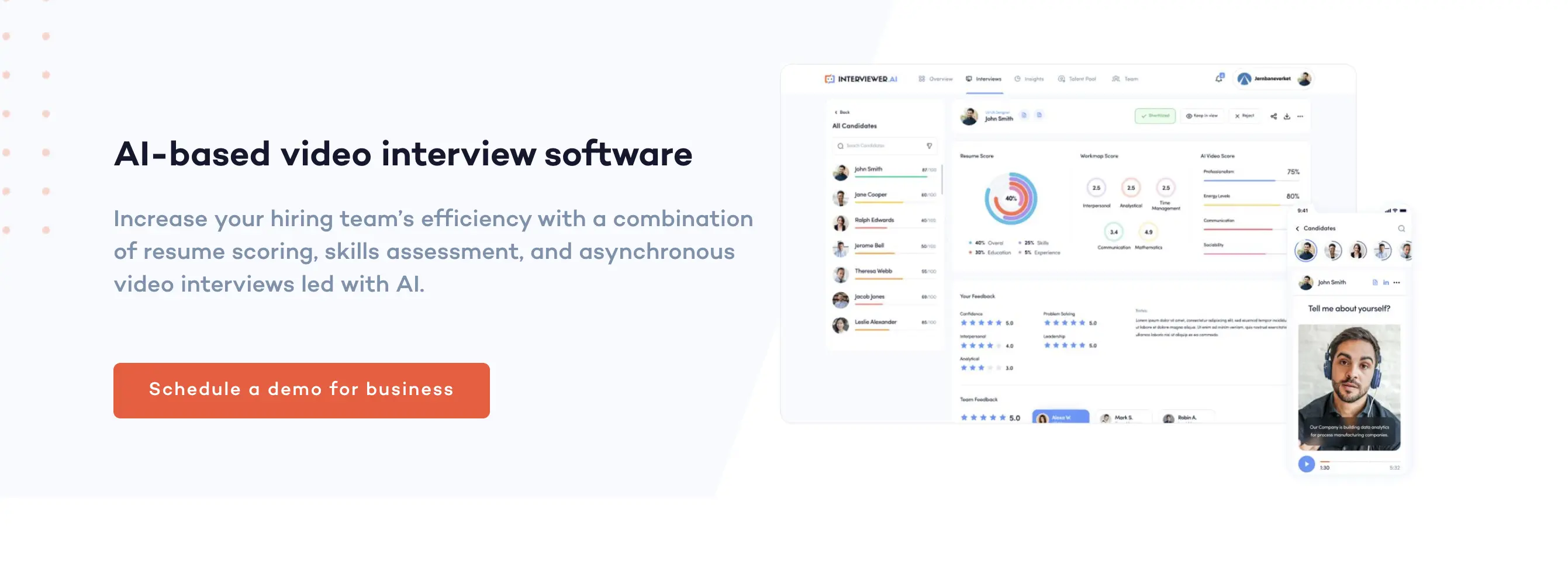
Interviewer.AI combines resume analysis, skill assessments, and one-way video interviews to automate much of the shortlisting process. The platform uses explainable AI to produce transparent scores and insights which help recruiters focus only on the most promising candidates. This structured approach reduces bias and adds consistency to early hiring stages.
Interviewer.AI started in Singapore and shows awareness of the local HR landscape. The platform focuses on AI-based screening which can be useful for small and medium enterprises that need to handle applicants without relying on large HR teams.
Key Features:
Weaknesses:
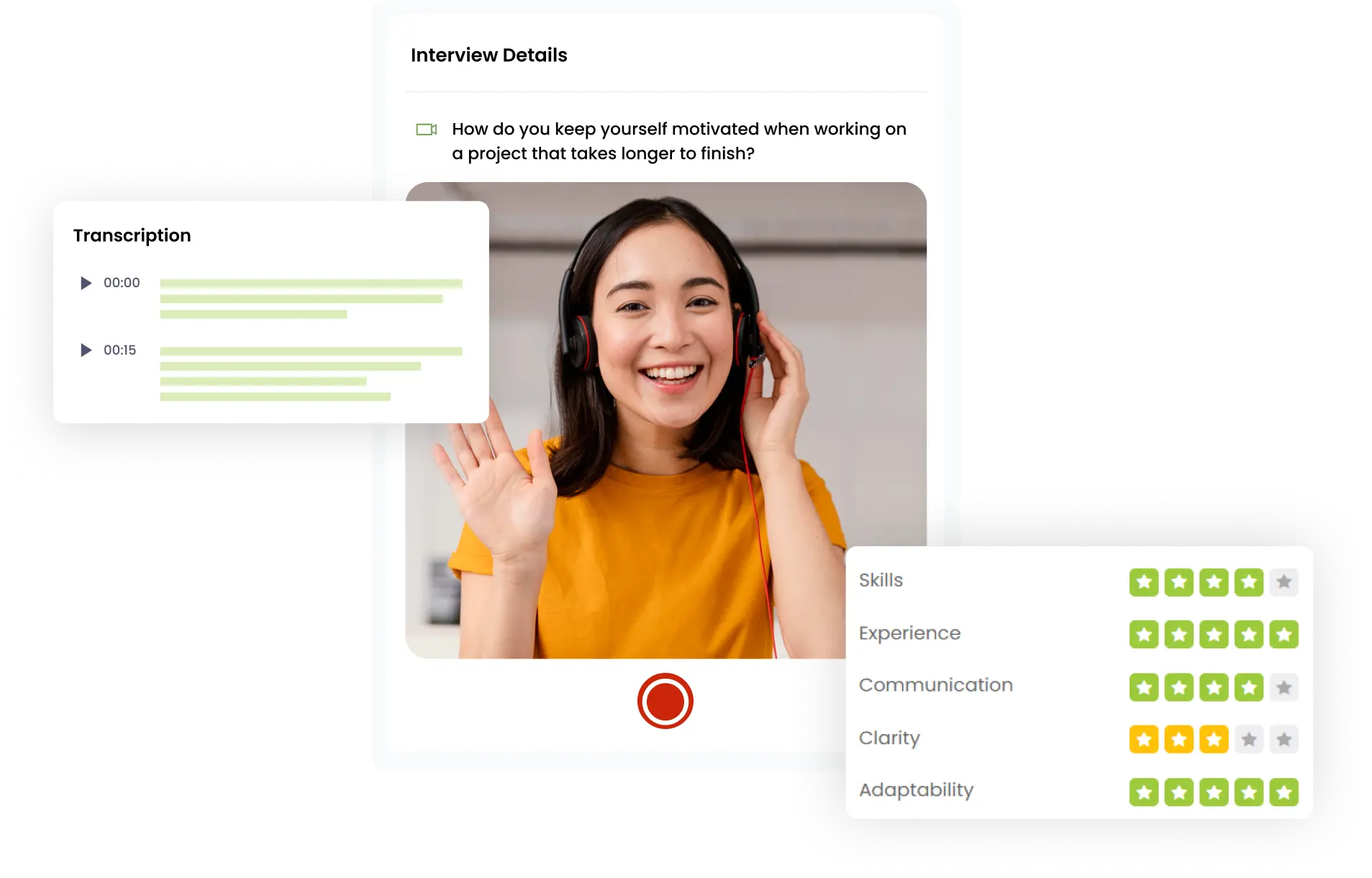
Jobma provides a wide set of interview formats including video, audio, text, and basic coding tests. It also supports both one-way and live video interviews, with AI-driven scoring and transcription to assist reviewers. This range of tools makes it versatile for different industries and roles.
Because Jobma supports around 18 languages and operates in more than 50 countries, it can effectively serve employers in Singapore who recruit across regions and require a multilingual platform.
Key Features
Weaknesses

Neufast is a multilingual AI-powered video assessment suite that streamlines candidate interviews through behavioral, facial, vocal, and linguistic analytics. Founded in Hong Kong in 2018 and launched in 2020, the company has since expanded its footprint with offices in Europe and Singapore.
Neufast regional presence means Singapore employers gain local access to advanced AI interview technology tailored for both Asian and global hiring needs which will ensure relevance, strong support, and compliance with local market expectations.
Key Features
Weaknesses
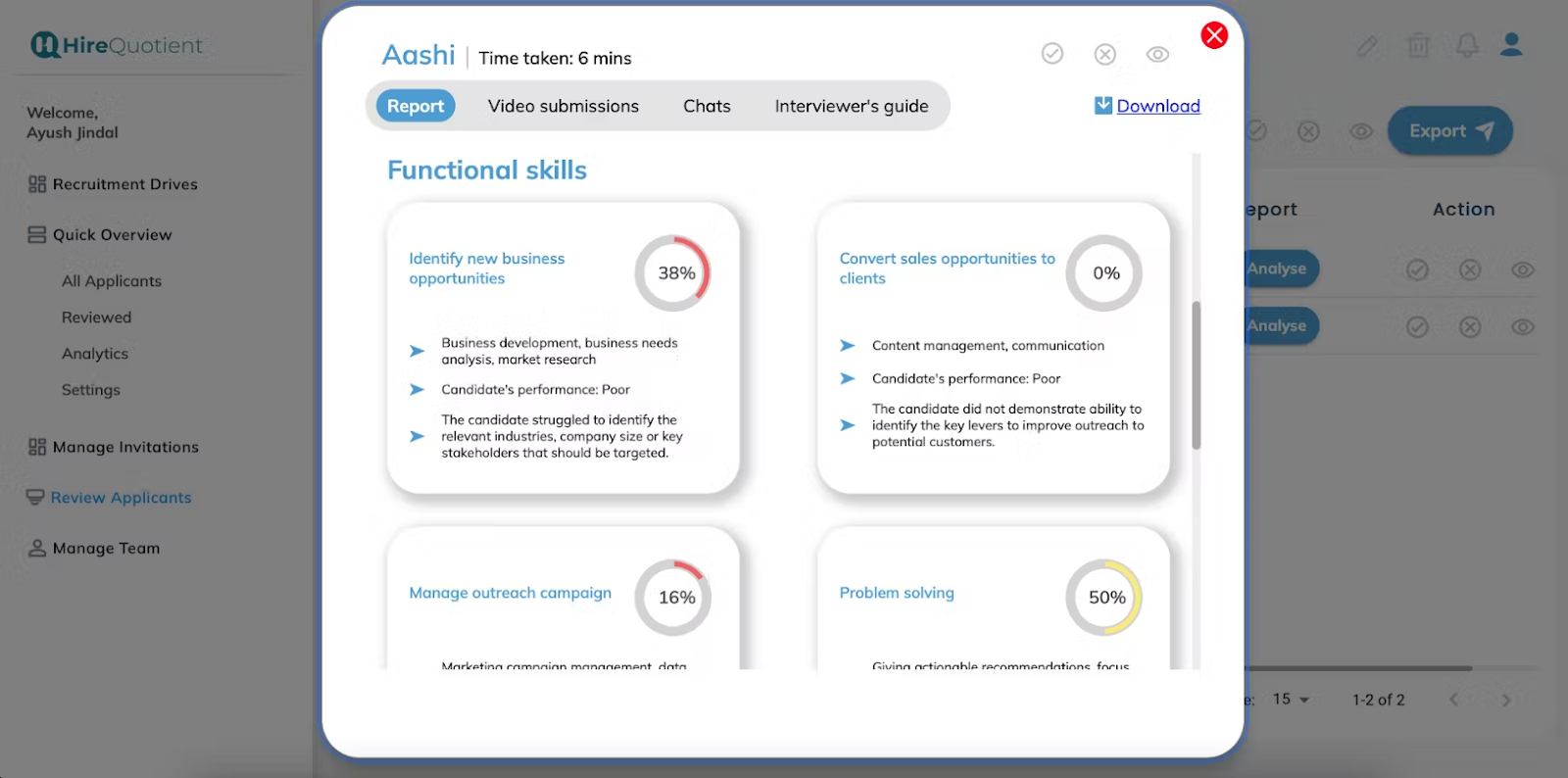
HireQuotient’s EasyInterview brings AI interviewers into the hiring process which presents candidates with structured and situational questions. It generates skill-focused evaluations that reveal how candidates approach real-world business problems.
The platform is Singapore-based which will give employers local access to innovation built with the regional market in mind. It is particularly useful for industries like consulting, finance, and professional services, where structured assessments are part of the hiring culture.
Key Features
Weaknesses
See also: 10 Most Effective Interviewing Techniques for Employers
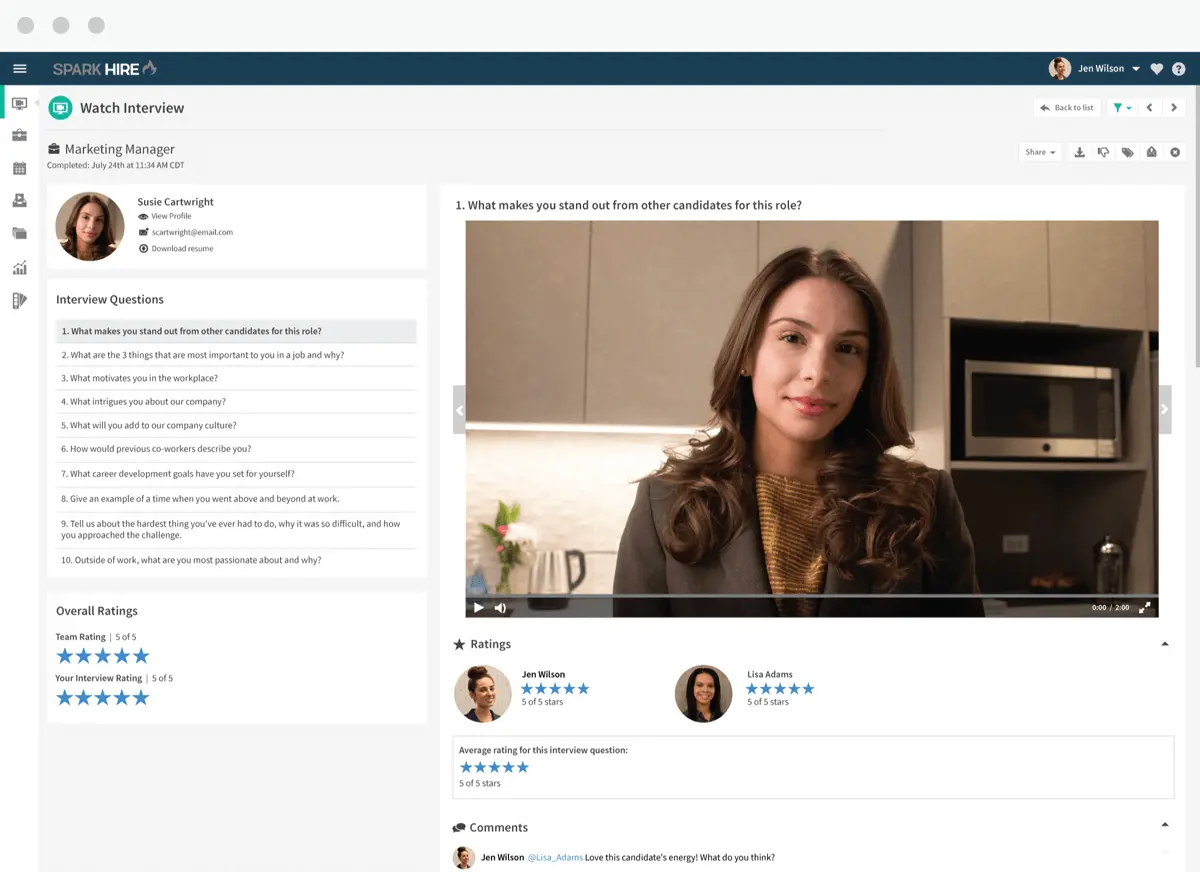
Spark Hire is one of video interviewing software which offers unlimited use of one-way and live interviews. It integrates with over 40 applicant tracking systems, making it easy to fit into existing HR technology stacks. Its design emphasizes ease of use, strong collaboration, and wide accessibility.
Although the U.S.-based, Spark Hire has been adopted globally by more than 7,000 companies. It is readily available to Singaporean employers, including multinational firms and agencies that need reliable infrastructure.
Key Features
Weaknesses
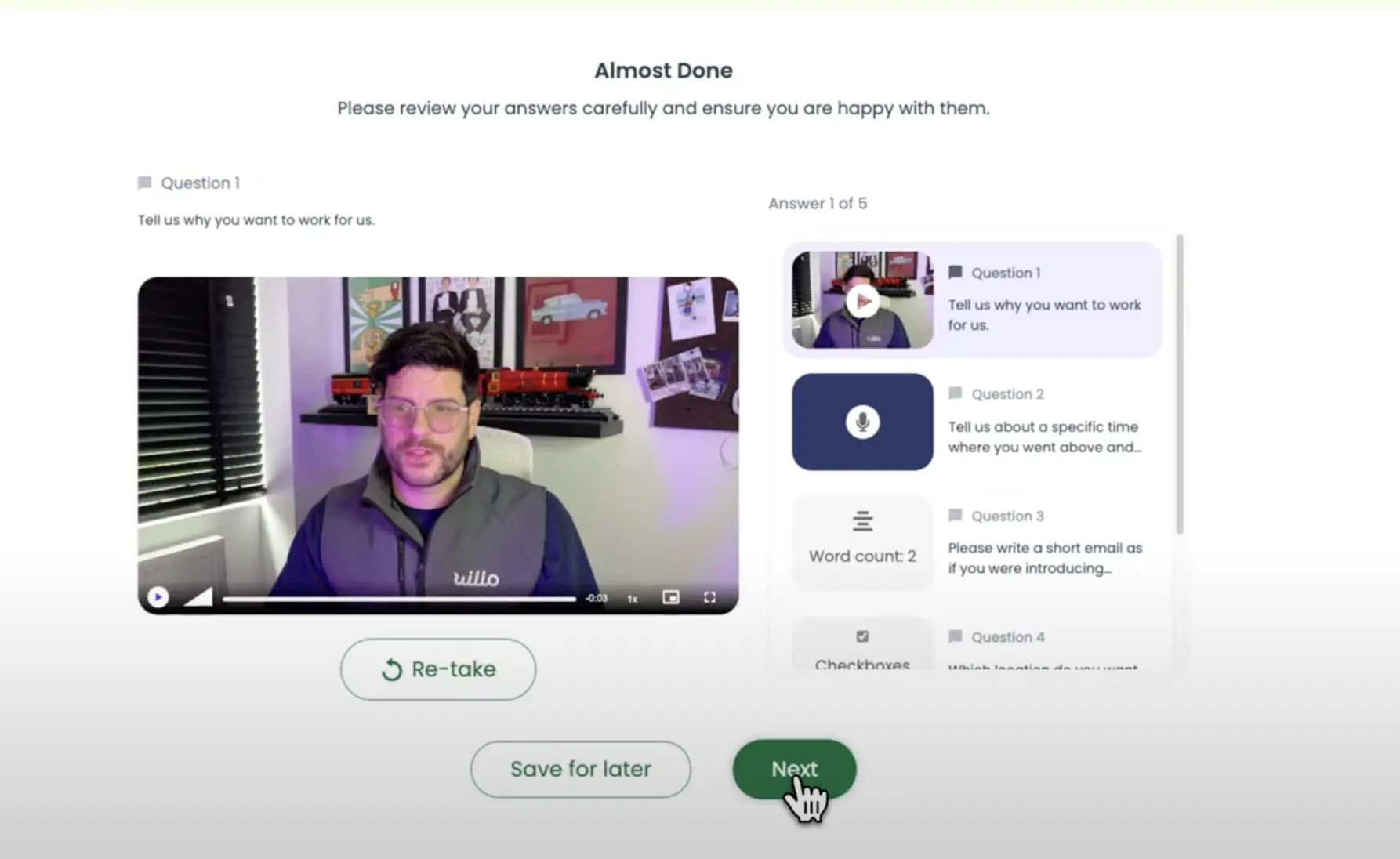
Willo focuses on asynchronous interviews with a candidate-friendly and mobile-first approach. Candidates can record their responses anytime without downloading apps, and recruiters can review them at their convenience.
Originally from Glasgow, Scotland, Willo has built a reputation for ease of use and affordability. For Singapore startups and SMEs, it provides a way to streamline early screening without heavy investment or complex setup. Its multilingual support also matches the needs of Singapore’s diverse job market.
Key Features
Weaknesses
See also: 5 AI Recruiting Software for Singapore Recruiter Productivity 2025
Video interview tools have shifted from optional to essential in hiring. What started out as a quick fix has now become a regular part. They allow companies to:
For Singapore, where nearly a quarter of the workforce is already working fully remote and most employers say skilled talent is hard to secure, the importance of the right digital hiring approach is even more pronounced.
If your team wants to simplify hiring and make better decisions faster, KitaHQ is built to do just that. Born in Singapore and designed with local needs in mind, it offers AI-driven interviews, automated scheduling, and structured insights that take the guesswork out of recruitment.
Book a demo of KitaHQ and give your hiring process the clarity, speed, and fairness to choose the attract and retain top candidates with confidence.
1. Which AI can generate interview questions?
AI-powered interview platforms such as KitaHQ can automatically generate interview questions from a job description. This feature saves recruiters time by removing the need to prepare questions manually and helps reduce bias in the evaluation process.
While some platforms rely on generic question banks, KitaHQ creates role-specific questions that adapt to the requirements of each job, making it especially useful for large applicant pools where structure and fairness are important.
2. What is the difference between one-way and live video interviews?
The difference between one-way and live video interviews is that one-way interviews let candidates record answers in advance, while live interviews take place in real time with a recruiter. One-way formats are useful for managing high volumes of applicants or scheduling across time zones, since recruiters can review the recordings later with AI transcripts and scoring.
On the other hand, live interviews allow for direct interaction and follow-up questions, but they often require more scheduling effort.
KitaHQ introduces a unique option here with AI-led live interviews. Instead of recruiters having to arrange time slots, the AI interviewer runs the session, asks structured questions, and produces detailed reports with highly accurate results. This gives employers the benefit of live-style interaction without the usual scheduling burden.
3. Which AI tool is best for an interview?
The best AI interview tool depends on the needs of the organization, but KitaHQ is one of the strongest options in Singapore because it was built locally for this market and designed to handle both structured and high-volume hiring.
The platform automates scheduling, generates AI-driven questions, and produces detailed reports with transcripts, scores, and summaries. It also offers AI-led live interviews, where the system itself runs the session without recruiters needing to arrange time slots, which will deliver consistent and highly accurate results.